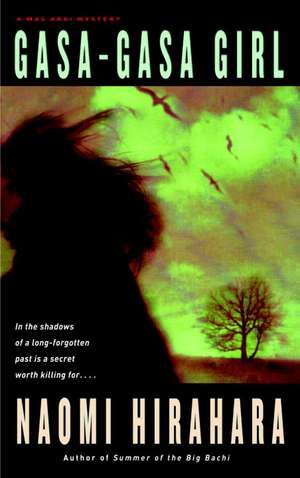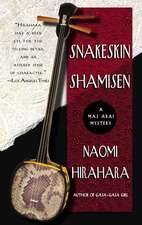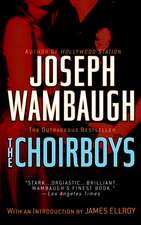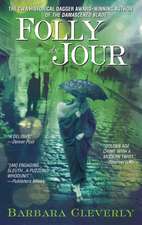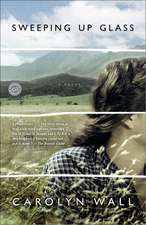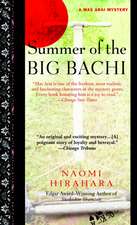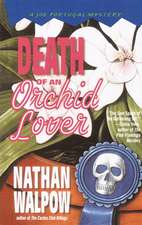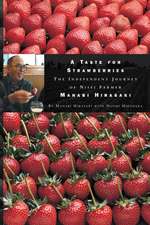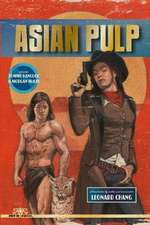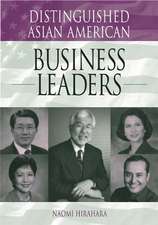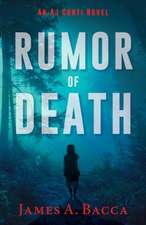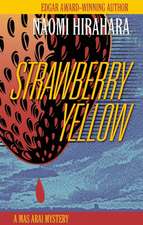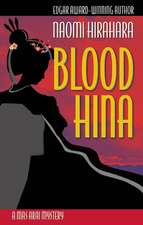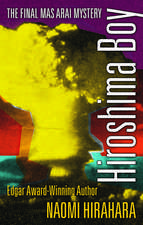Gasa-Gasa Girl: Mas Arai Mystery
Autor Naomi Hirahara, Hiraharaen Limba Engleză Paperback – 28 feb 2005
The victim was Kazzy Ouchi, a half-Japanese millionaire who also happened to be Mari and Lloyd’s boss. Stumbling onto the scene, Mas sees more amiss than the detectives do, but his instinct is to keep his mouth shut. Only when the case threatens his daughter and her family does Mas take action: patiently, stubbornly tugging at the end of a tangled, dangerous mystery. And as he does, he begins to lay bare a tragic secret on the dark side of an American dream.…
Both a riveting mystery and a powerful story of passionate relationships across a cultural divide, Gasa-Gasa Girl is a tale told with heart and wisdom: an unforgettable portrait of fathers, daughters, and other strangers.
Preț: 88.15 lei
Nou
Puncte Express: 132
Preț estimativ în valută:
16.87€ • 17.59$ • 14.02£
16.87€ • 17.59$ • 14.02£
Carte disponibilă
Livrare economică 27 februarie-13 martie
Livrare express 13-19 februarie pentru 19.88 lei
Preluare comenzi: 021 569.72.76
Specificații
ISBN-13: 9780385337601
ISBN-10: 0385337604
Pagini: 304
Dimensiuni: 134 x 210 x 17 mm
Greutate: 0.24 kg
Editura: DELTA
Seria Mas Arai Mystery
ISBN-10: 0385337604
Pagini: 304
Dimensiuni: 134 x 210 x 17 mm
Greutate: 0.24 kg
Editura: DELTA
Seria Mas Arai Mystery
Notă biografică
Naomi Hirahara is a freelance writer and journalist who served for several years as an editor of The Rafu Shimpo, the largest Japanese American daily newspaper. She is the author of two previous Mas Arai mysteries, Gasa-Gasa Girl and Summer of the Big Bachi, named one of "The Ten Best Mysteries and Thrillers of 2004" by the Chicago Tribune and a Publishers Weekly "Best Books of 2004" pick.
Extras
Chapter One
To go far from the noise of civilization, to live the simple country life and breathe deeply of pure air—that is the cleanser of life.—Takeo Shiota
New York City, August 1, 1915
March 2000
Mas knew that New York City wasn't for him as soon as he saw that its gardens were under lock and key. Even in the best neighborhoods in Beverly Hills or San Marino back in Southern California, lawns lay open like luxurious carpets to the edges of sidewalks, beckoning guests and the glances of envious passersby. Of course, back home there were also visual threats and warnings–the blue and yellow Armed Response signs on metal stakes. But it was one thing to pierce grass with a sign, and quite another to put a garden behind bars.
"It's called a community garden," Tug Yamada explained. "Everyone pitches in to make it green."
They were stuck in traffic on Flatbush Avenue. Tug had picked Mas up in a white Mercury rental car, a pearl amid the black Town Cars that had circled JFK Airport. Mas could always count on Tug to help him in a pinch. But then again, Mas guessed that Tug was behind this recent turn of events. It would take an outside force–specifically a six-foot Nisei, a second-generation Japanese American–to push Mas's daughter, Mari, to place a call from Brooklyn to his home in Altadena.
"Community? Like Japanese ones back in Los Angeles?"
"No Japanese gardeners over here, Mas. At least no more than you can count on one hand." Tug stretched out his palm, magnifying the missing half of his forefinger, a remnant of his war injury in Europe.
This was no place for Japanese gardeners and no place for a Kibei like Mas, who was born in the U.S. but raised in Japan. Kibei–"ki" meaning "return," "bei" referring to America–was a word made up by Japanese Americans to explain their limbo. So while America was actually home for the Kibei, many of them weren't quite comfortable with English; on the other hand, they weren't that comfortable speaking Japanese, either.
Mas was used to not belonging, but he felt an especially strong sense of displacement the minute he'd gotten on the plane. A bunch of hakujin and blacks, and a few young Chinese. There were a couple of Japanese, but they were business types who wore blue and black suits with ties and hard shoes even on the airplane. They sat in the front, behind a curtain that separated the first class from the rest of the plane, called economy but really meaning bimbo, for the passengers with no money, like Mas. Even when Mas returned to America from Hiroshima in 1947, he bought the third-class boat tickets, which turned out to be a large open room full of other teenage dreamers lying on goza, straw mats, on the bottom of the ship.
In the streets of New York, there were black and brown teenagers with the same look in their eyes. Wrapped in puffy jackets and their heads topped with knit caps, they seemed to hold their dreams casually, maybe recklessly, as if those dreams could never dry up.
"Everyone gasa-gasa ova here, huh?"
"Yeah, everyone moves around in New York, Mas. You should see where Joy lives in Manhattan. It's like rivers of people walking at night."
Tug had been in New York for a couple of weeks now before the opening of his daughter Joy's art exhibit. In Mas's eyes, Tug was the closest thing to an expert on Manhattan. "Joy live close to ova here?"
"You have to go over the Brooklyn Bridge, but it's just a short subway ride away."
"Fancy place, dis Manhattan?"
"Well, Joy lives in a postage stamp of an apartment. The water comes out all brown." Tug stroked his white beard. "And you know how I love baths, Mas."
Tug, in fact, had installed a Jacuzzi tub, his and his wife Lil's only extravagance, in their modest home just two miles east of Mas's. There was no doubt that this love for baths started when Tug was a child simmering nightly in the family furo, the huge Japanese wooden tub, on their red chili pepper farm.
Mas asked a few more perfunctory questions about Joy, then cut to the chase. "So you knowsu whatsu goin' on with Mari?"
"I'd better let her and Lloyd explain."
Lloyd? Mas had barely thought of his new son-in-law. "Not the baby–?" Mas couldn't even say the name: Takeo Frederick Jensen. It was too long; and why had they named the child Takeo, anyhow?
Mari had sent a photo back in December of a little red monkey-faced infant with fists curled up like cooked shrimp. You couldn't tell if the baby looked more Japanese or hakujin or something in between. Mas remembered when Mari had been that small. He was almost afraid to touch her, and even Chizuko told him to keep his distance. But, in time, he got the hang of it–support the neck, watch the soft spot on top of the head. The first and only time he gave Mari a bath, he noticed a dark-blue mark above her buttocks and thought he had done something wrong. "Masao-san, most Japanese babies have that," Chizuko said, laughing. Later Tug's wife, Lil, explained that doctors called it a Mongolian spot, which seemed like a fancy term for a temporary birthmark on a baby's behind.
Tug stopped the car at another light, and Mas noticed another one of the community gardens. This one was a triangle of green trapped next to a fancy white store that looked like it sold overpriced basketball shoes and jerseys. Mas could make out a Japanese cedar, and even some kind of makeshift pond. It was still cold in New York, a good thirty degrees lower than L.A. Were the people of New York City so hungry for trees and flowers that they had to create this spring oasis in the middle of melting snow?
Tug seemed to read Mas's mind. "Lloyd was telling me about that place. Even has a name, Teddy Bear Garden, or something like that."
Teddy bear? Kids' stuff, thought Mas.
"A developer was going to get rid of the garden, so the whole community, even Lloyd and Mari, protested. Early on, somebody had thrown a teddy bear into the area, so I guess the name stuck. You know about these community gardens, Mas. There's one across the freeway from Dodger Stadium, I think."
Tug was a die-hard Dodger fan, so it was no wonder that anything remotely involving his baseball team would stick in his mind. Mas himself recollected seeing the small clumps of flowers and vegetables against a hill right above one of the tunnels of the Pasadena Freeway. And there was another garden in Alhambra, a few towns south of Altadena, where Chinese immigrants dressed in cotton pants and sometimes straw hats tended stalks of corn and vines of cherry tomatoes. But those gardens were primarily vegetables, while these ones on Flatbush Avenue were filled with trees and flowers struggling to bloom. In L.A., everybody had pride of ownership in their personal flower gardens–a concept that had led Mas and several thousands of other Japanese Americans to get jobs as gardeners, whether they could actually grow anything or not. Everyone assumed that Japanese had green thumbs. If only they knew the truth: that most of them starting out could hardly tell the difference between a weed and an impatiens plant. But they had caught on fast enough, making money to feed their families and send their kids to fancy schools as far away as New York.
"How long youzu gonna stay?" Mas asked.
"Well, Joy's exhibition opens in a couple of weeks. You, Mari, and Lloyd are all invited, you know. I don't know about the baby, though. I don't know what people do at art gallery openings."
Tug's daughter, Joy, had recently traded in her white coat and stethoscope for poverty and paintbrushes. It had been a bad blow, but in typical Yamada fashion, Tug had bounced back, in full support of his daughter's new career. Mas had never been much into support; at least that's what both Chizuko and Mari told him time and time again. That's why he had been surprised to hear Mari's quavering voice on the other end of the line from Brooklyn: "We're in a bit of trouble, Dad. We might need your help." Help? When had Mari ever asked for help? Mari didn't want to get into the details but told him that she and her new husband, Lloyd, were going to buy him an airplane ticket. "You'll need a driver's license to board. And don't forget a credit card, just in case," she said.
But there was one problem: Mas didn't have a credit card. He'd had one briefly, when his wife, Chizuko, was alive, but that had been about fifteen years ago. So he went to the bank, and within a week, he had his own shiny piece of plastic bearing on it his full name, masao arai.
Now, with his driver's license and new credit card in his worn leather wallet, he had both an identity and money. He wasn't sure whether they were enough to help Mari, but he knew if he didn't come through this time, he probably would never get the chance again.
They passed a few more corner pizza shops, a line of leafless trees in a brown park, and some small grocery stores that looked like the old produce stands in Little Tokyo. Tug finally turned right onto a smaller avenue called Carlton. On both sides of the street were three-story brick buildings–brownstones, Tug had called them. They all had heavy metal gates on the doors, but no Armed Response signs. These Brooklyn people chose to fight their crime the old-fashioned way, thought Mas.
Cars were parked bumper to bumper along the curb, so Tug double-parked in front of one of the brownstones, pressing down a button to open the trunk. "I'm sorry I can't wait with you," Tug said.
He left the car running while he got out and lifted Mas's hard plastic yellow Samsonite suitcase from the trunk. Mas clenched his arthritic hands as he waited out on the curb in the cold.
Tug handed Mas the suitcase and a set of keys. "Lloyd asked me to give these to you. One's for the gate and the other's for the door. He'll come home right after work."
And Mari, what about her? Before Mas could get any more information, Tug was back at the driver's-side door. "See you, old man. I'll call you tomorrow."
Mas hesitated for a moment in front of the brownstone. Clutching his suitcase and keys, he started up the concrete steps, only to have Tug honk his car horn. Shaking his head of white hair back and forth, Tug lowered the passenger's-side window. "No, Mas," he said, "not up there. Down."
Mas pointed to a gate on the right that seemed to submerge below street level, and Tug nodded in response. With that, the white rental disappeared down Carlton Avenue, leaving only a brief trail of steam and exhaust.
This was worse than Mas had imagined. He knew making ends meet for a freelance filmmaker and–could he even say it–modern-day gardener in New York must be tough, but was it tough enough that they had to live underground? Even the small window, no higher than Mas's knees from the street, was heavily barred. You couldn't tell if it was meant to keep people out or keep people in.
Trying the keys a couple of times, Mas was finally able to open the gate. Beyond the gate was a dark and damp entryway leading to a large door. Mas's eyes had trouble adjusting to the dim light, so he pulled out his new Rite Aid reading glasses from his shirt pocket to pick out the key for the door.
The apartment was cool and musty, much like his garage after a winter rain. There were layers of smells: the familiar staleness of old newspapers and books, a lingering memory of meals made by Mari and Lloyd, and maybe decades of households before them, and a faint sweetness of talcum powder. Mas felt the side of the wall by the door–wood paneling, but no light switch. He could make out the outline of a lamp shade, found the knob, and turned it two times.
The front room was small, about fifteen feet by fifteen feet. There was a long couch along the wall on the left side, but what caught Mas's eye first was a set of wooden stairs that led not to a door or room but to another wall. Stairs that went nowhere, an underground apartment–what was this house? Tug had explained that the neighborhood was called Park Slope, but Mas hadn't seen any sign of anything green other than the Teddy Bear Garden. He noticed that unlike in typical Japanese American households, no shoes were left anywhere near the doorway, so he went ahead and stepped onto the hardwood floors, leaving his suitcase on the threadbare brown rug.
There was a mini kitchen in the corner, a wire dish rack holding a couple of coffee cups, a plate, and a few upside-down baby bottles. A desk by the hollow fireplace was overburdened by papers and books–it seemed almost as if it were spitting out and rejecting the weight of the information it carried. Mas turned on another lamp by the desk and peered at the books. Most were in English, but a couple were in Japanese. A Japanese-English dictionary, the fat kind that Chizuko had used when she was writing official letters, sat on a shelf. Even though Mas and Chizuko had sent their daughter to Japanese school every Saturday, Mari wouldn't have anything to do with the language and had forgotten the little that she had learned. Chizuko was offended and sometimes hurt when the teenage Mari had hissed at her in public places: "Speak English, Mom, speak English."
These couldn't be Mari's books: but then again, who else's would they be? The son-in-law's?
On the shelf next to the dictionary were a couple of photographs: the same one of the baby Takeo that Mari had sent to Mas, and a large one of Mari with her pale and scraggly husband, Lloyd, standing on some cement stairs leading to an official government building. Mas had not seen Lloyd for years, and that absence hadn't done Lloyd any good. Instead of looking more refined and clean-cut, his hair was down to his shoulders and barely combed. He wore wire-rimmed glasses and a tan suit, but he wasn't fooling anyone. He was a no-good gardener, just like Mas. But while Mas was a Kibei, Lloyd was a hakujin man, over six feet tall. He had absolutely no excuse for falling into the same line of work as desperate men.
Taped to the wall over the desk was a grainy photocopy of a man's image. Mas adjusted his Rite Aid glasses. A Japanese man wearing a straw hat and suit. A shadow fell on half the man's face, but he looked important. Erai: a big-boss type. The image was black-and-white and had obviously been taken more than half a century ago, maybe in the 1920s or 1930s, about the time Mas was born.
To go far from the noise of civilization, to live the simple country life and breathe deeply of pure air—that is the cleanser of life.—Takeo Shiota
New York City, August 1, 1915
March 2000
Mas knew that New York City wasn't for him as soon as he saw that its gardens were under lock and key. Even in the best neighborhoods in Beverly Hills or San Marino back in Southern California, lawns lay open like luxurious carpets to the edges of sidewalks, beckoning guests and the glances of envious passersby. Of course, back home there were also visual threats and warnings–the blue and yellow Armed Response signs on metal stakes. But it was one thing to pierce grass with a sign, and quite another to put a garden behind bars.
"It's called a community garden," Tug Yamada explained. "Everyone pitches in to make it green."
They were stuck in traffic on Flatbush Avenue. Tug had picked Mas up in a white Mercury rental car, a pearl amid the black Town Cars that had circled JFK Airport. Mas could always count on Tug to help him in a pinch. But then again, Mas guessed that Tug was behind this recent turn of events. It would take an outside force–specifically a six-foot Nisei, a second-generation Japanese American–to push Mas's daughter, Mari, to place a call from Brooklyn to his home in Altadena.
"Community? Like Japanese ones back in Los Angeles?"
"No Japanese gardeners over here, Mas. At least no more than you can count on one hand." Tug stretched out his palm, magnifying the missing half of his forefinger, a remnant of his war injury in Europe.
This was no place for Japanese gardeners and no place for a Kibei like Mas, who was born in the U.S. but raised in Japan. Kibei–"ki" meaning "return," "bei" referring to America–was a word made up by Japanese Americans to explain their limbo. So while America was actually home for the Kibei, many of them weren't quite comfortable with English; on the other hand, they weren't that comfortable speaking Japanese, either.
Mas was used to not belonging, but he felt an especially strong sense of displacement the minute he'd gotten on the plane. A bunch of hakujin and blacks, and a few young Chinese. There were a couple of Japanese, but they were business types who wore blue and black suits with ties and hard shoes even on the airplane. They sat in the front, behind a curtain that separated the first class from the rest of the plane, called economy but really meaning bimbo, for the passengers with no money, like Mas. Even when Mas returned to America from Hiroshima in 1947, he bought the third-class boat tickets, which turned out to be a large open room full of other teenage dreamers lying on goza, straw mats, on the bottom of the ship.
In the streets of New York, there were black and brown teenagers with the same look in their eyes. Wrapped in puffy jackets and their heads topped with knit caps, they seemed to hold their dreams casually, maybe recklessly, as if those dreams could never dry up.
"Everyone gasa-gasa ova here, huh?"
"Yeah, everyone moves around in New York, Mas. You should see where Joy lives in Manhattan. It's like rivers of people walking at night."
Tug had been in New York for a couple of weeks now before the opening of his daughter Joy's art exhibit. In Mas's eyes, Tug was the closest thing to an expert on Manhattan. "Joy live close to ova here?"
"You have to go over the Brooklyn Bridge, but it's just a short subway ride away."
"Fancy place, dis Manhattan?"
"Well, Joy lives in a postage stamp of an apartment. The water comes out all brown." Tug stroked his white beard. "And you know how I love baths, Mas."
Tug, in fact, had installed a Jacuzzi tub, his and his wife Lil's only extravagance, in their modest home just two miles east of Mas's. There was no doubt that this love for baths started when Tug was a child simmering nightly in the family furo, the huge Japanese wooden tub, on their red chili pepper farm.
Mas asked a few more perfunctory questions about Joy, then cut to the chase. "So you knowsu whatsu goin' on with Mari?"
"I'd better let her and Lloyd explain."
Lloyd? Mas had barely thought of his new son-in-law. "Not the baby–?" Mas couldn't even say the name: Takeo Frederick Jensen. It was too long; and why had they named the child Takeo, anyhow?
Mari had sent a photo back in December of a little red monkey-faced infant with fists curled up like cooked shrimp. You couldn't tell if the baby looked more Japanese or hakujin or something in between. Mas remembered when Mari had been that small. He was almost afraid to touch her, and even Chizuko told him to keep his distance. But, in time, he got the hang of it–support the neck, watch the soft spot on top of the head. The first and only time he gave Mari a bath, he noticed a dark-blue mark above her buttocks and thought he had done something wrong. "Masao-san, most Japanese babies have that," Chizuko said, laughing. Later Tug's wife, Lil, explained that doctors called it a Mongolian spot, which seemed like a fancy term for a temporary birthmark on a baby's behind.
Tug stopped the car at another light, and Mas noticed another one of the community gardens. This one was a triangle of green trapped next to a fancy white store that looked like it sold overpriced basketball shoes and jerseys. Mas could make out a Japanese cedar, and even some kind of makeshift pond. It was still cold in New York, a good thirty degrees lower than L.A. Were the people of New York City so hungry for trees and flowers that they had to create this spring oasis in the middle of melting snow?
Tug seemed to read Mas's mind. "Lloyd was telling me about that place. Even has a name, Teddy Bear Garden, or something like that."
Teddy bear? Kids' stuff, thought Mas.
"A developer was going to get rid of the garden, so the whole community, even Lloyd and Mari, protested. Early on, somebody had thrown a teddy bear into the area, so I guess the name stuck. You know about these community gardens, Mas. There's one across the freeway from Dodger Stadium, I think."
Tug was a die-hard Dodger fan, so it was no wonder that anything remotely involving his baseball team would stick in his mind. Mas himself recollected seeing the small clumps of flowers and vegetables against a hill right above one of the tunnels of the Pasadena Freeway. And there was another garden in Alhambra, a few towns south of Altadena, where Chinese immigrants dressed in cotton pants and sometimes straw hats tended stalks of corn and vines of cherry tomatoes. But those gardens were primarily vegetables, while these ones on Flatbush Avenue were filled with trees and flowers struggling to bloom. In L.A., everybody had pride of ownership in their personal flower gardens–a concept that had led Mas and several thousands of other Japanese Americans to get jobs as gardeners, whether they could actually grow anything or not. Everyone assumed that Japanese had green thumbs. If only they knew the truth: that most of them starting out could hardly tell the difference between a weed and an impatiens plant. But they had caught on fast enough, making money to feed their families and send their kids to fancy schools as far away as New York.
"How long youzu gonna stay?" Mas asked.
"Well, Joy's exhibition opens in a couple of weeks. You, Mari, and Lloyd are all invited, you know. I don't know about the baby, though. I don't know what people do at art gallery openings."
Tug's daughter, Joy, had recently traded in her white coat and stethoscope for poverty and paintbrushes. It had been a bad blow, but in typical Yamada fashion, Tug had bounced back, in full support of his daughter's new career. Mas had never been much into support; at least that's what both Chizuko and Mari told him time and time again. That's why he had been surprised to hear Mari's quavering voice on the other end of the line from Brooklyn: "We're in a bit of trouble, Dad. We might need your help." Help? When had Mari ever asked for help? Mari didn't want to get into the details but told him that she and her new husband, Lloyd, were going to buy him an airplane ticket. "You'll need a driver's license to board. And don't forget a credit card, just in case," she said.
But there was one problem: Mas didn't have a credit card. He'd had one briefly, when his wife, Chizuko, was alive, but that had been about fifteen years ago. So he went to the bank, and within a week, he had his own shiny piece of plastic bearing on it his full name, masao arai.
Now, with his driver's license and new credit card in his worn leather wallet, he had both an identity and money. He wasn't sure whether they were enough to help Mari, but he knew if he didn't come through this time, he probably would never get the chance again.
They passed a few more corner pizza shops, a line of leafless trees in a brown park, and some small grocery stores that looked like the old produce stands in Little Tokyo. Tug finally turned right onto a smaller avenue called Carlton. On both sides of the street were three-story brick buildings–brownstones, Tug had called them. They all had heavy metal gates on the doors, but no Armed Response signs. These Brooklyn people chose to fight their crime the old-fashioned way, thought Mas.
Cars were parked bumper to bumper along the curb, so Tug double-parked in front of one of the brownstones, pressing down a button to open the trunk. "I'm sorry I can't wait with you," Tug said.
He left the car running while he got out and lifted Mas's hard plastic yellow Samsonite suitcase from the trunk. Mas clenched his arthritic hands as he waited out on the curb in the cold.
Tug handed Mas the suitcase and a set of keys. "Lloyd asked me to give these to you. One's for the gate and the other's for the door. He'll come home right after work."
And Mari, what about her? Before Mas could get any more information, Tug was back at the driver's-side door. "See you, old man. I'll call you tomorrow."
Mas hesitated for a moment in front of the brownstone. Clutching his suitcase and keys, he started up the concrete steps, only to have Tug honk his car horn. Shaking his head of white hair back and forth, Tug lowered the passenger's-side window. "No, Mas," he said, "not up there. Down."
Mas pointed to a gate on the right that seemed to submerge below street level, and Tug nodded in response. With that, the white rental disappeared down Carlton Avenue, leaving only a brief trail of steam and exhaust.
This was worse than Mas had imagined. He knew making ends meet for a freelance filmmaker and–could he even say it–modern-day gardener in New York must be tough, but was it tough enough that they had to live underground? Even the small window, no higher than Mas's knees from the street, was heavily barred. You couldn't tell if it was meant to keep people out or keep people in.
Trying the keys a couple of times, Mas was finally able to open the gate. Beyond the gate was a dark and damp entryway leading to a large door. Mas's eyes had trouble adjusting to the dim light, so he pulled out his new Rite Aid reading glasses from his shirt pocket to pick out the key for the door.
The apartment was cool and musty, much like his garage after a winter rain. There were layers of smells: the familiar staleness of old newspapers and books, a lingering memory of meals made by Mari and Lloyd, and maybe decades of households before them, and a faint sweetness of talcum powder. Mas felt the side of the wall by the door–wood paneling, but no light switch. He could make out the outline of a lamp shade, found the knob, and turned it two times.
The front room was small, about fifteen feet by fifteen feet. There was a long couch along the wall on the left side, but what caught Mas's eye first was a set of wooden stairs that led not to a door or room but to another wall. Stairs that went nowhere, an underground apartment–what was this house? Tug had explained that the neighborhood was called Park Slope, but Mas hadn't seen any sign of anything green other than the Teddy Bear Garden. He noticed that unlike in typical Japanese American households, no shoes were left anywhere near the doorway, so he went ahead and stepped onto the hardwood floors, leaving his suitcase on the threadbare brown rug.
There was a mini kitchen in the corner, a wire dish rack holding a couple of coffee cups, a plate, and a few upside-down baby bottles. A desk by the hollow fireplace was overburdened by papers and books–it seemed almost as if it were spitting out and rejecting the weight of the information it carried. Mas turned on another lamp by the desk and peered at the books. Most were in English, but a couple were in Japanese. A Japanese-English dictionary, the fat kind that Chizuko had used when she was writing official letters, sat on a shelf. Even though Mas and Chizuko had sent their daughter to Japanese school every Saturday, Mari wouldn't have anything to do with the language and had forgotten the little that she had learned. Chizuko was offended and sometimes hurt when the teenage Mari had hissed at her in public places: "Speak English, Mom, speak English."
These couldn't be Mari's books: but then again, who else's would they be? The son-in-law's?
On the shelf next to the dictionary were a couple of photographs: the same one of the baby Takeo that Mari had sent to Mas, and a large one of Mari with her pale and scraggly husband, Lloyd, standing on some cement stairs leading to an official government building. Mas had not seen Lloyd for years, and that absence hadn't done Lloyd any good. Instead of looking more refined and clean-cut, his hair was down to his shoulders and barely combed. He wore wire-rimmed glasses and a tan suit, but he wasn't fooling anyone. He was a no-good gardener, just like Mas. But while Mas was a Kibei, Lloyd was a hakujin man, over six feet tall. He had absolutely no excuse for falling into the same line of work as desperate men.
Taped to the wall over the desk was a grainy photocopy of a man's image. Mas adjusted his Rite Aid glasses. A Japanese man wearing a straw hat and suit. A shadow fell on half the man's face, but he looked important. Erai: a big-boss type. The image was black-and-white and had obviously been taken more than half a century ago, maybe in the 1920s or 1930s, about the time Mas was born.
Recenzii
"[Hirahara] brings heart and elegance to a nifty whodunit.... In the process of solving a murder mystery, an elderly Japanese-American begins to rebuild the strained relationship with his only daughter."—Kirkus Reviews
”What makes this series unique is its flawed and honorable protagonist. … A fascinating insight into a complex and admirable man.”—Booklist, starred review
“The endearing, quietly dignified Mas, supported by a cast of spirited New Yorkers, as well as the distinctive Japanese-flavored prose, make this a memorable read.”—Publishers Weekly
“A compelling grasp of the Japanese American subculture … absolutely fascinating.”—Asian American Press
”What makes this series unique is its flawed and honorable protagonist. … A fascinating insight into a complex and admirable man.”—Booklist, starred review
“The endearing, quietly dignified Mas, supported by a cast of spirited New Yorkers, as well as the distinctive Japanese-flavored prose, make this a memorable read.”—Publishers Weekly
“A compelling grasp of the Japanese American subculture … absolutely fascinating.”—Asian American Press
Descriere
Both a riveting mystery and a powerful story of passionate relationships across a cultural divide, "Gasa-Gasa Girl" is a tale told with heart and wisdom: an unforgettable portrait of fathers, daughters, and other strangers.
